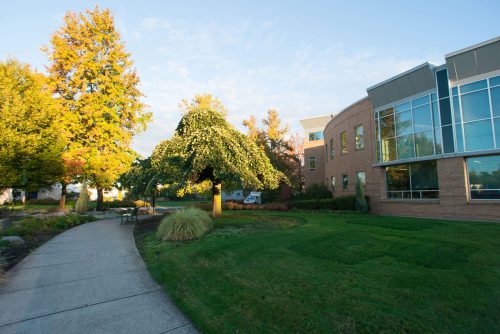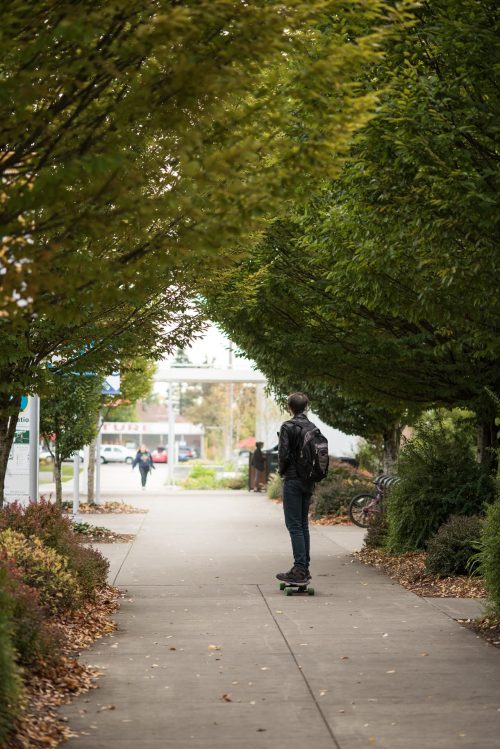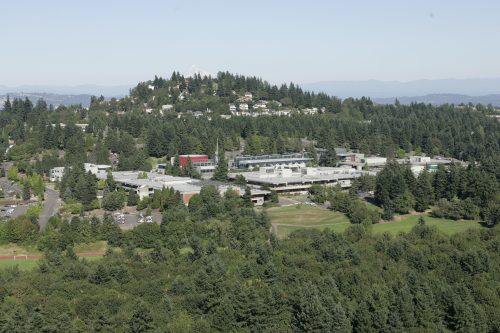Strategy, Policy, and Integrated Planning (SPIP)

At the heart of Portland Community College’s commitment to excellence, the Strategy, Policy, and Integrated Planning (SPIP) Division ensures our institution remains adaptive, forward-looking, and aligned with the ever-evolving needs of our community. We are dedicated to aligning our college’s strategic vision with meaningful policies, securing resources, and ensuring effectiveness in every aspect of the college’s mission.
What We Do
- Strategic Planning: We oversee the college’s long-term vision, aligning it with our mission, values, and the needs of our students and community. The 2025-2028 Strategic Plan is PCC’s blueprint for the next three years, emphasizing student success, community engagement, and sustainable growth.
- Policy and Governance Development: Creating a transparent, updated, and robust policy framework that governs our institution’s decisions and operations. The division also serves as stewards of the institution’s policies, ensuring they are clear, updated, and relevant.
- Integrated Planning & Continuous Improvement: By integrating different planning efforts at the college – academics, operations, community outreach, among others – we strive for a harmonized and holistic approach to education. We continually refine our strategies, approaches, and operations, ensuring that we remain adaptive and effective.
- Institutional Effectiveness: Assessing and evaluating the impact of our initiatives, ensuring that our actions lead to tangible, positive outcomes for our community.
- Grants: Identifying, applying for, and managing grants that further the college’s objectives and amplify our resources.
The Origins and Goals of SPIP
In the Reaffirmation of PCC Accreditation in July of 2022, PCC’s accreditors, the Northwest Commission on Colleges and Universities (NWCCU), made four recommendations that help structure and define the work of SPIP.
- Recommendation 1: Continue to integrate its planning processes (e.g., strategic plan, equity plan, and other planning efforts) and their associated metrics to ensure they are systematic in defining mission fulfillment and facilitating continuous improvement.
- Recommendation 2: Further refine its use of disaggregated data from its planning processes to inform and implement strategies to guide planning, decision-making, and allocation of resources.
- Recommendation 3: Fully demonstrate that the results of its assessment efforts are used to inform academic and learning-support planning practices to continuously improve student learning outcomes and learning-support planning practices.
- Recommendation 4: Comprehensive alignment of policies, procedures, and administrative guidelines that are clearly stated, easily understandable, readily accessible, and regularly reviewed.
With these recommendations in mind, the division of Strategy, Policy, and Integrated Planning was created, and is leading the charge to innovate in these areas.
Meet the SPIP Team
- Kurt Simonds, Vice-President, Strategy, Policy, & Integrated Planning
- Heather Allenby, Executive Assistant
- Dieterich Steinmetz, Dean, Effectiveness and Planning
- Celeste Armstrong-Cortez, Administrative Assistant
- Magda D’Angelis, Coordinator, Labor Market Data
- Selena Niles, Coordinator, Program Review
- Laura Massey, Director, Institutional Effectiveness
- Institutional Effectiveness Team:
- Programmer/Analyst: Trey Guy
- Programmer/Analyst: Djambel Unkov
- Programmer/Analyst: Ryan Bohac
- Research Analyst: Alyssa Eggebrecht
- Institutional Effectiveness Team:
- Sarah Rose Evans, Manager, Strategic Planning
- Jeannie Moton-Winn, Manager, Policy/Special Projects
- Lorraine Churchill, Manager, Emergency Preparedness
- Vanessa Wood, Director, Grants
- Grants Team
- Grant Specialist & Assistant: Shannan Cox
- Grant Specialist & Assistant: Marcie Evans
- Pre-Award Grant Officer: Jill Gear
- Pre-Award Grant Officer: Lori Gates
- Pre-Award Grant Officer: Michelle DuBarry
- Post-Award Grant Officer: Beth Gebstadt
- Grants Team
Questions?
Contact us: spip@pcc.edu
Thank you for your interest in our division. Together, we look forward to crafting a vibrant and inclusive future for Portland Community College.





